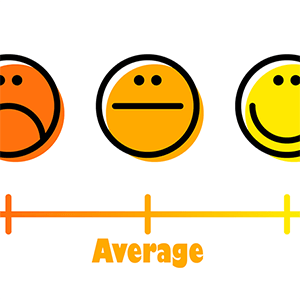DHRpro Insights Blog
We created our DHRpro InSights blog to share news, ideas, and some insight into how we are different than everyone else. Read on and then, why not consider learning more about how implementing our patient visualization and decision support dashboards can help your practice?
Painful Dry Eye Disease More Common Than One Might Think
Many people suffer from painful dry eye disease. Between 16.7M and 50.2M Americans have dry eyes; a chronic, progressive condition that can be controlled, but doesn’t go away.
Study Reveals Alarming Growth of Diabetic Retinopathy
Diabetes-related eye disease has become substantially more prevalent in the U.S. since the last estimation in 2004, a new study published in JAMA Ophthalmology suggests.
Healthy Food Choices for Better Eye Care
We all know the food we choose to put into our bodies has a direct impact on our health, but on a deeper level, what about the food that impacts our eye health?
Employing AI and ChatGPT to Save Time and Save Lives
Healthcare companies across the nation are on a mission to employ AI and ChatGPT as tools to automate EHR processes, allowing doctors to spend more time with their patients.
Dropping Breadcrumbs for a Movement to Interoperability
Dr. Leonard Ginsburg spoke at this year’s ASCRS/ASOA conference on the various challenges facing healthcare and dropped breadcrumbs for a movement to true interoperability.
A Step Forward for AI in EHR: Microsoft and Epic Partnership
Microsoft and Epic announced an expanded partnership that will integrate AI into EHR software to improve efficiency and accuracy in electronic health records. This is only the beginning.
How TEFCA is Changing Healthcare
Almost 15 years in the making, the dream of the Electronic Health Record (EHR) is finally coming to fruition. TEFCA is its name and a new world of data sharing is on the horizon.
FDA Approves First Treatment for Advanced Dry AMD
Patients and doctors across the country are celebrating a monumental moment in the history of retinal care: the first treatment for advanced dry AMD (geographic atrophy) has been FDA-approved.
Transparency In Coverage Rule
Great For Doctors, Too
There is one thing Trump and Biden seem to agree on, a mission both their Administrations committed to, increasing healthcare price transparency. The Transparency In Coverage Rule helps patients shop around for healthcare and helps healthcare providers to better negotiate with insurers.
No Surprises Act
As a doctor in the health care field, have you heard about surprise billing? The No Surprises Act protects patients from unexpected medical bills from out-of-network providers and emergency services. It also mandates that providers provide a clear guide to how they bill for their services while also requiring written patient consent before balance billing.
Saying Goodbye
It’s one of those things that, no matter how much time passes, will likely never change. When it comes to ushering in a New Year, especially after another year where Covid-19 has dictated so much of how what we do and how we interact with each other, saying Goodbye to 2022 doesn’t feel quite so heavy on our shoulders.
The Gift That Keeps on Giving
Perhaps the most pressing question facing many of us today is this: what is the perfect gift? As the winter holiday season rolls in, we are all searching every shelf in every store for that perfect gift.
Well, today, we are pleased to announce we have the perfect gift for medical practices that will have massive positive ripple effects across the entire practice population.
Thankful!
As Thanksgiving rapidly approaches and a new year is just around the corner, what do you have to be thankful for?
Many businesses didn’t make it through Covid, and those of us who continue to work every day are thankful we are a part of companies that did. At DHRpro, we are thankful for our doctors, administrative staff, and billers who give us the opportunity to customize our software around their needs.
Waste. We See It Every Day.
Waste. We see it every day in our personal and professional lives. Uneaten food, multitudes of items thrown away, and time. So many things are wasted, but isn’t time one of our most precious?
For doctors, wasted time converts into lost revenue and can also result in lost patients.
Got Patient History? We Do!
Ah, fall, the season of change. Leaves turn from green to colorful oranges, yellows, and reds. And a new gentle breeze rustles through the autumn air.
Though we love change, we must also recognize some things should stay as they are. We’re talking about your practice’s #1 most critical asset: your patients’…
But Why Be Average?
Here’s what happens when you settle for average:
- Over 1/4th of your patients are lost to follow-up.
- 19% of all your patient interactions go unbilled.
- More than 80% of your medical bills contain errors.
Average doesn’t sound so good. Does it?
Time is Precious. Efficacy is Key.
Too often, we spend our days scrambling, eating breakfast on the road, sprinting between offices, and even rushing our patients in and out the door—all in a desperate attempt to collect more time. The question is not how to magically extend our days to create more time, but how to optimize the time we do have?
Struggles of the Great Data Migration
As children, each of us at one time laid on the grass looking to the skies watching with glee as thousands of birds flew south for the winter. Little did we know all that inherently went into that migration…The same level of complexity and difficulty can exist when migrating from a legacy EMR to a new state-of-the-art system.
Curing Physician Burnout and Gaining Independence from EHR
Fireworks soar up into the night’s sky. It’s Independence Day. But oh boy, you are exhausted. What your pals don’t know is that you just came off a twelve-hour shift at the hospital. You can’t imagine doing it again tomorrow. You might be what the medical community considers…
But Where Did Our Patients Go?
The period between a patient’s visits is like a summer vacation in childhood. A patient comes into your office. The usual visit. They schedule a return visit for three to six months later…but where are they…
Clear The Chaos. Our Practices Can Do Better.
Albert Einstein once said, “Order is for idiots. Genius can handle chaos.” While a medical clinic can survive in chaos, maintaining a chaotic environment is simply a disservice to all parties involved, especially the most critical branch of the office.




















